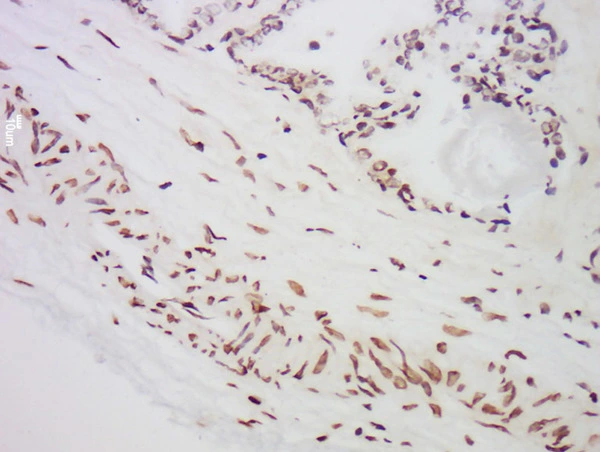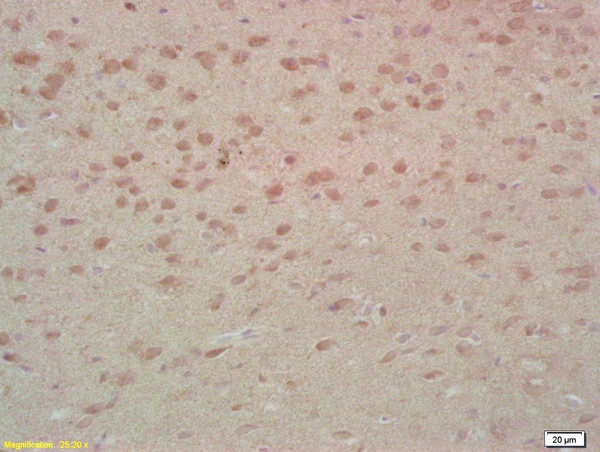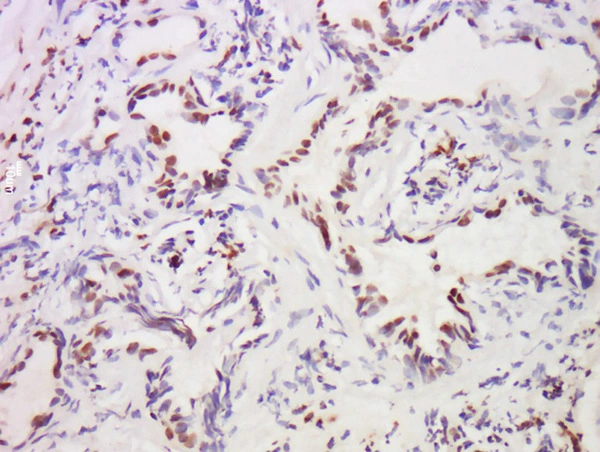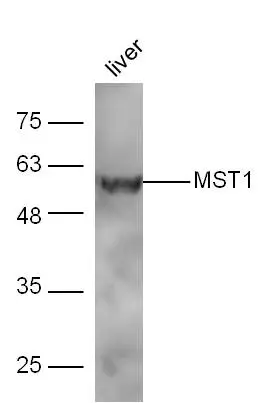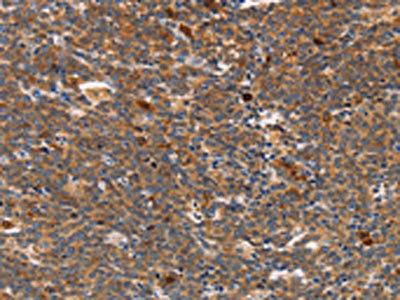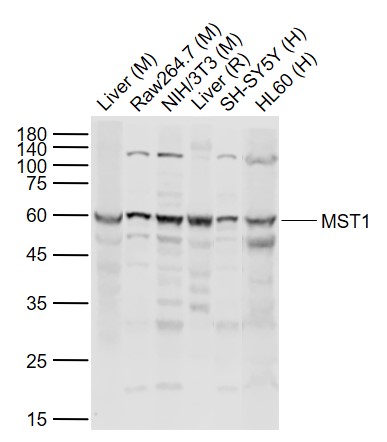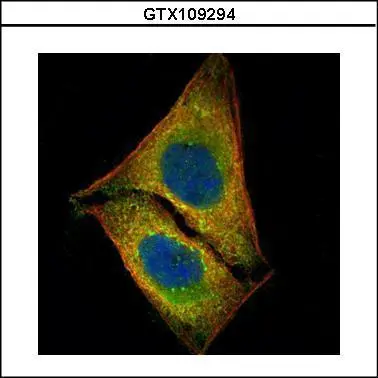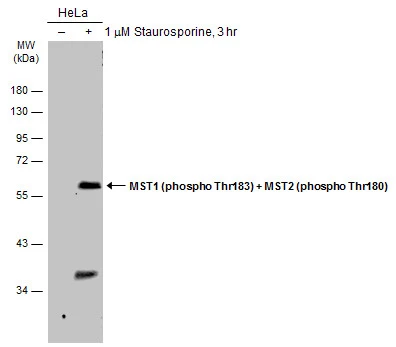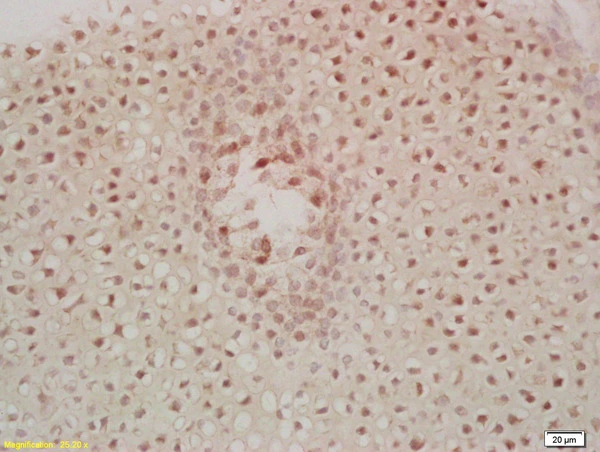
IHC-P analysis of mouse embryo tissue using GTX04891 MST1 antibody. Dilution : 1:200
MST1 antibody
GTX04891
ApplicationsWestern Blot, ImmunoHistoChemistry, ImmunoHistoChemistry Paraffin
Product group Antibodies
ReactivityHuman, Mouse, Rat
TargetSTK4
Overview
- SupplierGeneTex
- Product NameMST1 antibody
- Delivery Days Customer7
- Application Supplier NoteWB: 1:300-1:5000. IHC-P: 1:200-1:400. *Optimal dilutions/concentrations should be determined by the researcher.Not tested in other applications.
- ApplicationsWestern Blot, ImmunoHistoChemistry, ImmunoHistoChemistry Paraffin
- CertificationResearch Use Only
- ClonalityPolyclonal
- Concentration1 mg/ml
- ConjugateUnconjugated
- Gene ID6789
- Target nameSTK4
- Target descriptionserine/threonine kinase 4
- Target synonymsKRS2, MST1, YSK3, serine/threonine-protein kinase 4, STE20-like kinase MST1, hippo homolog, kinase responsive to stress 2, mammalian STE20-like protein kinase 1, mammalian sterile 20-like 1, serine/threonine-protein kinase Krs-2
- HostRabbit
- IsotypeIgG
- Protein IDQ13043
- Protein NameSerine/threonine-protein kinase 4
- Scientific DescriptionThe protein encoded by this gene is a cytoplasmic kinase that is structurally similar to the yeast Ste20p kinase, which acts upstream of the stress-induced mitogen-activated protein kinase cascade. The encoded protein can phosphorylate myelin basic protein and undergoes autophosphorylation. A caspase-cleaved fragment of the encoded protein has been shown to be capable of phosphorylating histone H2B. The particular phosphorylation catalyzed by this protein has been correlated with apoptosis, and its possible that this protein induces the chromatin condensation observed in this process. [provided by RefSeq, Jul 2008]
- ReactivityHuman, Mouse, Rat
- Storage Instruction-20°C or -80°C,2°C to 8°C
- UNSPSC41116161

